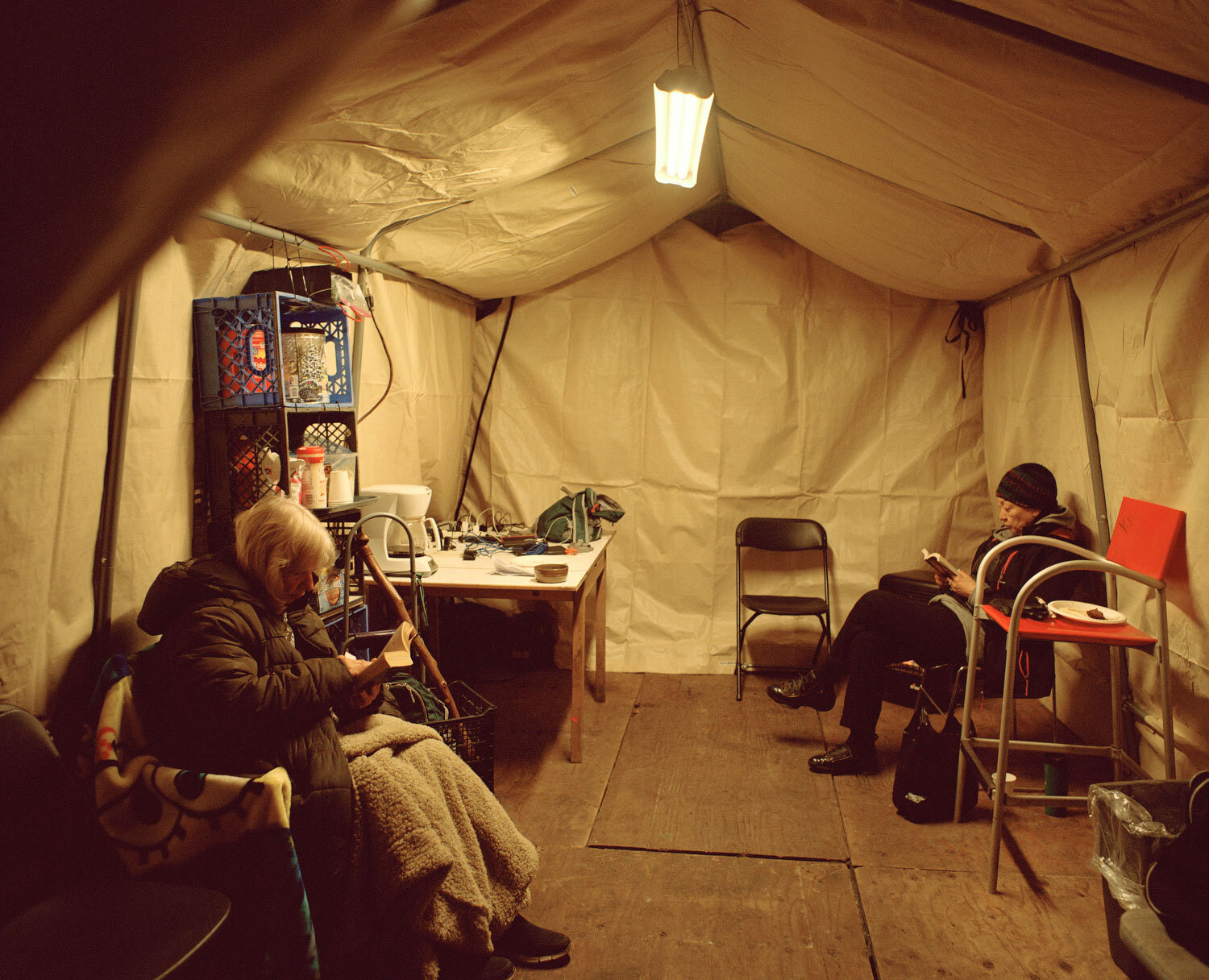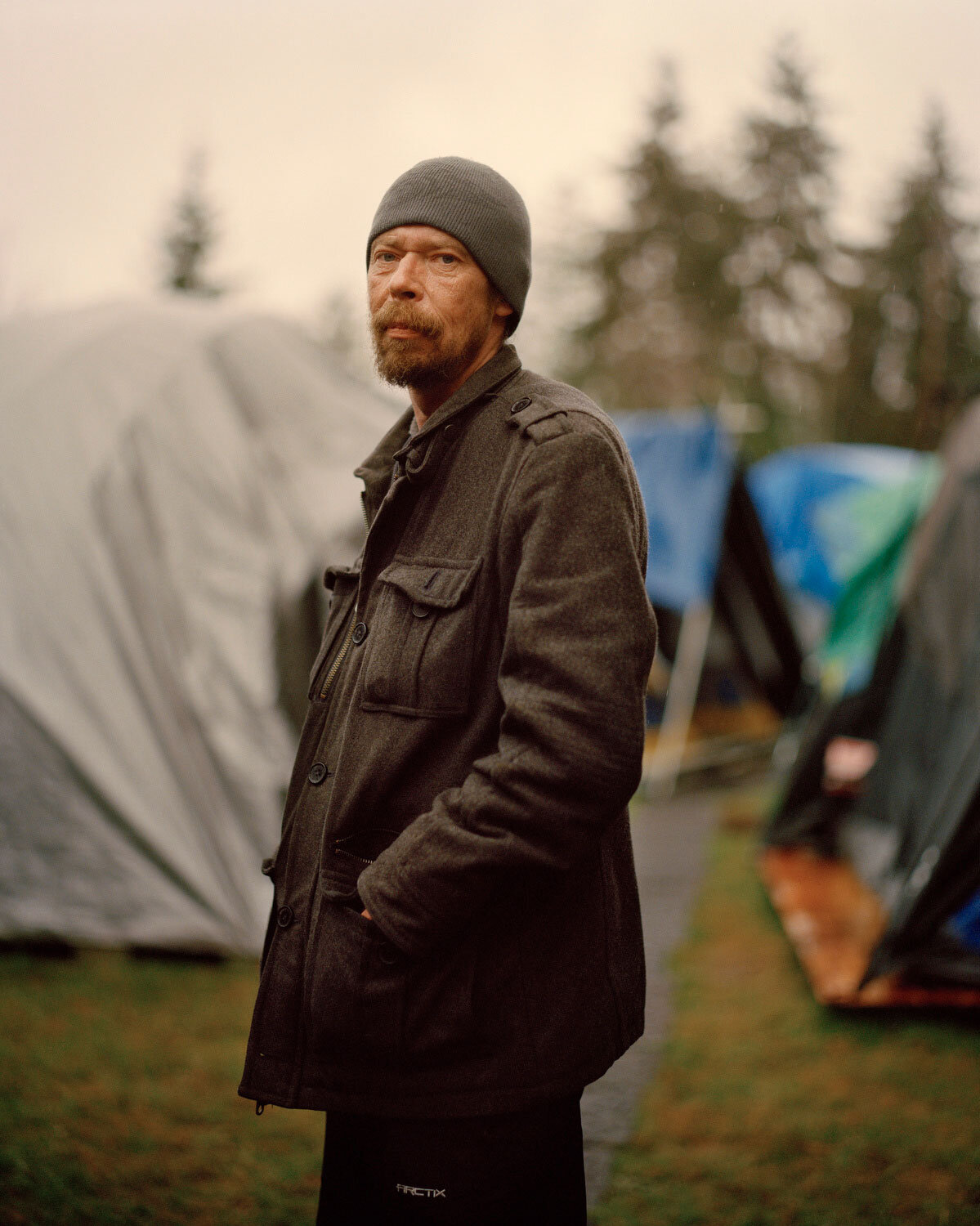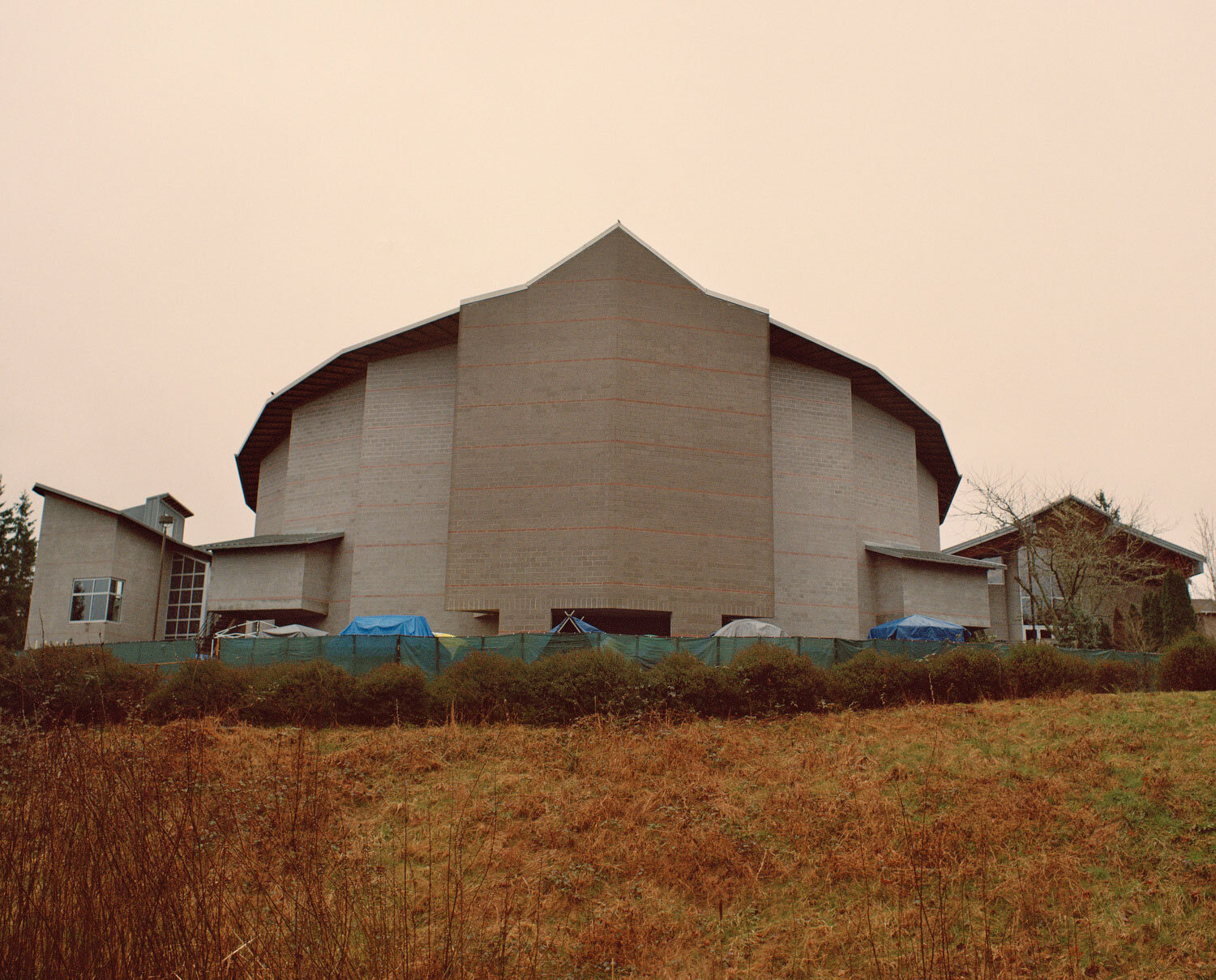Tent City
The west coast of the United States has been hit by unprecedented homelessness. Tech companies like Amazon, Apple, Microsoft, Facebook and Twitter have caused rent prices to skyrocket, which is putting pressure on the lower middle class. Seattle is the United States’ 20th largest city, but with over 12,000 people without a permanent home, it is also the city with the third highest number of homeless people in the country.
The result has been organised tent camps where completely “normal” Americans with everyday-jobs live. One of them is´Tent City 4´, where private donors provide space for the tents, electricity and water.
Dimitri Shvetsoff, 49 år, San Fransisco
Dimitri originally came to the United States from Brazil and lived the American dream. He had a house, a wife, two cars and a good career. When the financial crisis hit the country in 2008, everything changed, he lost everything and was never able to recover his career.
‘I have worked unskilled minimum wage jobs for a long time. It is quite simply not possible for me to find a better job right now. I hope to be able to buy a piece of land and build my own house someday. That is everyone’s dream here.’
Dean Spiker, 65, Seattle
Since 2013, Dean has worked part-time due to back problems, which has pressured his finances so much that he had to move into Tent City 4.
‘I have never lived in a place where I have had less in common with my neighbours – however, I have never felt a stronger sense of community than I do here. We really take care of each other. People have prejudices that homeless people either have mental illnesses or take hard drugs. That is absolutely not the case here. We are just completely “normal” people.’
Usually it is met with disapproval when groups of homeless people move into the neighbourhood, but with this model, the camp relocates every three months, which makes it possible to stay on good terms with the neighbours. The donors provide space for the tents, power and water. Food is delivered on a daily basis, primarily from private donors in the local community. There is a zero-tolerance policy regarding drugs and alcohol, which is strictly observed.
Bernie Backman, 58, Kirkland
Bernie is a third generation Marine and a veteran. He was badly injured in the line of duty and has since tried to get compensation from the US military, but without success. After fighting the system for ten years, Bernie has now had his case finally rejected, which is forcing him to live in Tent City 4.
‘I have so many injuries that I can’t keep a job, so right now my life really doesn’t consist of anything. I suffer from post-traumatic stress after my experiences in the army, and my latest diagnosis says I’m also bipolar. Still, I am betting heavily on being able to start working part-time again soon.’
Vijah Lih, 37, Seattle
Vijah is adopted from India, and has had an very difficult relationship with his adoptive family throughout his entire childhood – a childhood plagued by traumas and abuse. A year ago he decided to leave his family and he has lived in Tent City 4 ever since.
‘Normally, I work 40 hours a week, and I still can’t afford to pay rent. I will earn approximately $1,600. A one-room apartment here in Seattle costs $1,500. The minimum wage is simply not high enough to match the high rental prices. So right now, I am faced with the choice of either paying for a roof over my head or for food.’
Theresa Huddleston, 60, Kenmore
For most of her life, Theresa has worked as a computer network technician. When her mother was suffering from Alzheimer's, Theresa spent all her savings in her mother's nursing home. When Theresa recently lost her job, she could no longer afford the family house and had no more savings left.
‘I have given up on finding work again, since it is extremely rare that people my age can find a new job. Actually, I don’t really know how to get out of this camp, but I’m hoping things will change soon.’
Sam Robertson 72 år, Palm Springs
Sam is a former marine and was stationed in Vietnam. He has had good jobs for most of his life, at Hilton Hotels among other places, and he is now retired. Five years ago, he decided that he wanted to be a volunteer and moved into Tent City 4.
‘Right now, the average age in the camp is around 50. It is people that late in life, for one reason or another, has been hit with financial problems. Many of them have no contact with their family anymore, so there is no one to help them. When I was young, America was a proud country. A country with strong family values, where you stood up for one another. That has changed. War, politics, drugs. All that has caused our core values to change.’
Back in the early ’80s, former President Ronald Reagan abolished what was called “rent control” in Seattle. This gave home-owners and property-owners unlimited opportunities and set the market free.
Since then, house prices have been steadily increasing. Within the last six years, prices have skyrocketed, with an increase of over 60% since 2014. In addition to this, the increasing homelessness also stems from an American economic system based on a ‘winner-takes-it-all’ principle. Compared to many European countries’ economic systems, there is not the same safety net regarding healthcare and welfare in the United States.
The Reagan administration also discontinued many options for treatment of mental illnesses, and it closed down most treatment facilities in Seattle during the 1980s. The result is now showing its ugly face in downtown Seattle, where many mentally ill people are forced to live on the streets.
Published by Washington Post & Politiken











